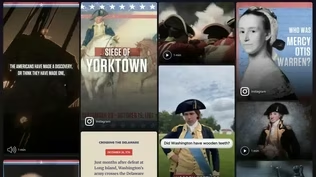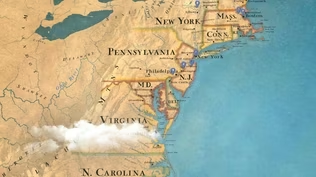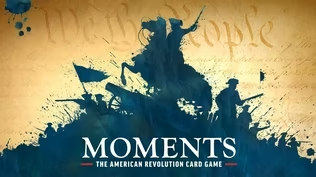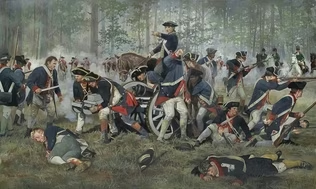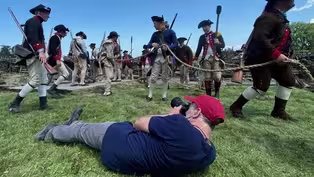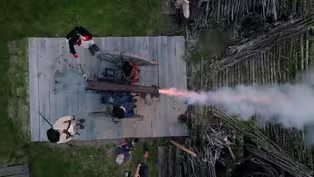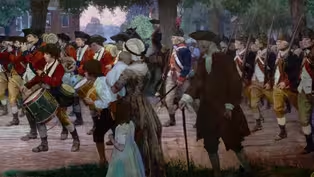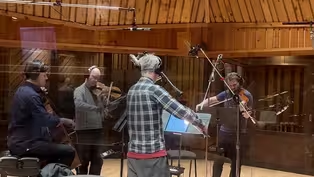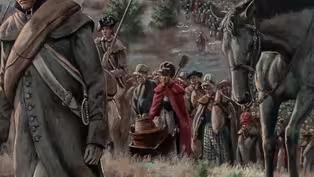
Inside Look | Our Origin Story
Clip: Special | 6m 18sVideo has Closed Captions
Ken Burns, Sarah Botstein, and David Schmidt on the challenges of telling America's origin story.
Ken Burns, Sarah Botstein, and David Schmidt on the challenges of telling America's origin story, and how, by examining that story, Americans can have a dynamic conversation about what America means today.
Problems playing video? | Closed Captioning Feedback
Problems playing video? | Closed Captioning Feedback
Episodes presented in 4K UHD on supported devices. Corporate funding for THE AMERICAN REVOLUTION was provided by Bank of America. Major funding was provided by The Better Angels Society and...

Inside Look | Our Origin Story
Clip: Special | 6m 18sVideo has Closed Captions
Ken Burns, Sarah Botstein, and David Schmidt on the challenges of telling America's origin story, and how, by examining that story, Americans can have a dynamic conversation about what America means today.
Problems playing video? | Closed Captioning Feedback
How to Watch The American Revolution
The American Revolution is available to stream on pbs.org and the free PBS App, available on iPhone, Apple TV, Android TV, Android smartphones, Amazon Fire TV, Amazon Fire Tablet, Roku, Samsung Smart TV, and Vizio.
Buy Now
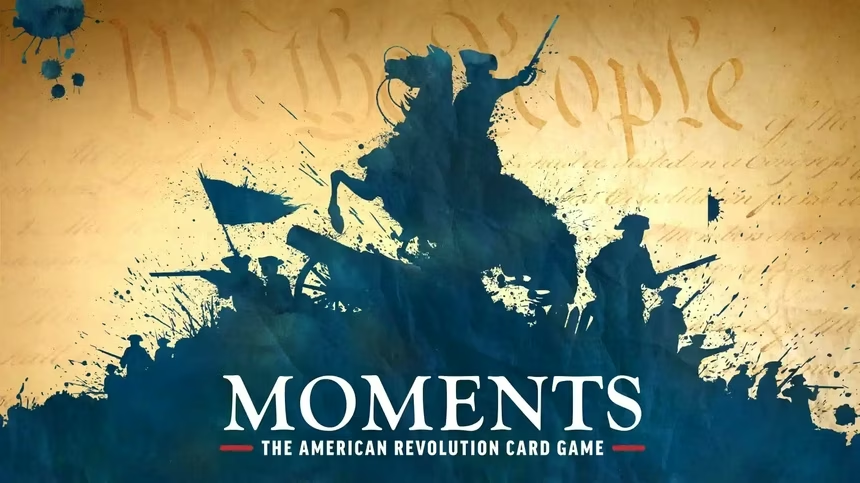
MOMENTS: The Revolutionary War Card Game
Use your knowledge of Revolutionary-era moments to build a timeline of real historical events.Providing Support for PBS.org
Learn Moreabout PBS online sponsorship(spirited music) - [Narrator] "We are in the very midst of a revolution, the most complete, unexpected, and remarkable of any in the history of nations, objects of the most stupendous magnitude and measures in which the lives and liberties of millions yet unborn are intimately interested are now before us."
John Adams.
(explosion booms) - We were locking our film on the Vietnam War, and just as we had decided to do that, as we were locking the film on the Second World War, I just had this thought.
The next war we had to do was the American Revolution.
As horrible as wars are, they tell us hugely important things about who we are and the period that we're in.
You began to realize that the whole question of this American project, which has been my project, is born in the revolution, and to ask questions of the revolution seemed absolutely imperative.
- War never follows the script that you have written for it when you set out to make war.
The British objective is, first and foremost, to suppress the rebellion.
It's to teach the rascals a lesson.
It's to force them to acknowledge the primacy of parliament and the authority of the king, and so now the decision has been made that we will use force, and there's a presumption that it won't take much, but it's gonna go on for eight years.
Eight years, blood, treasure, catastrophe, really, for the British Empire.
- The revolution is, obviously, in some ways, the central, most important war in our history.
All wars leave us with myths.
What did Patrick Henry actually say?
What was Paul Revere's midnight ride actually about?
What happened in the Boston Tea Party?
Did Washington cross the Delaware in the daytime or the nighttime?
Who made the first flag?
When did the war start and when did the war end?
It's been an extraordinary journey to try and tell the story about our founding, about our origin story.
- I think to believe in America, rooted in the American Revolution, is to believe in possibility.
That, to me, is the extraordinary thing about the patriot side of the fight.
I think everybody on every side, including people who were denied even the ownership of themselves, had the sense of possibility worth fighting for.
(guns bang) - When we think about war in our lifetime, it tends to be away from the United States.
A lot of people, a lot of Americans have lived through war, but it's not in our backyard typically.
This war was.
- What we have to first understand is that it's a civil war.
Maybe a quarter of all the civilians in the colonies are Loyalists and remain loyal to the Crown and the laws and they don't wanna upset the apple cart, and so this is a bloody, bloody civil war.
- The Loyalists are essentially the conservatives.
They're the people who believe in law and order.
They don't like mobs.
They don't like committees telling them what to do.
They don't see King George III as a tyrant.
- [Narrator] "We are preparing for war.
To fight with whom?
Not with France and Spain, whom we have been used to think are natural enemies, but with Great Britain, our parent country.
My heart recoils at the thought."
Andrew Elliot.
(dramatic music) - The American Revolution is our story.
It's everyone's story.
It's where the country began, and so much of who we are today came from the story of the American Revolution.
The revolutionary generation thought about us, the unborn millions.
They talked about posterity.
In 1777, John Adams wrote to his wife, Abigail, and said, "Posterity: you will never know what it costs the present generation to preserve your freedom," and I think this is our opportunity to let our present generation know what they did, what they went through, and how much it matters to us today that they did.
- This is a young war.
George Washington is in his 40s.
Thomas Jefferson is in his 30s.
People fighting the war are 14 to 50.
It is a young country and a young war.
They were rebellious, feisty, youthful patriots trying to figure it out.
The people we all have heard of in grade school, middle school, high school, maybe studied in college, and all the people we haven't heard about whose histories haven't been told.
War exposes the best and the worst in all of us.
It inspires and repels us.
War is, unfortunately, the history of the human experience.
- It turns out this film is arriving just before the 250th anniversary of the signing of the Declaration of Independence, and so we are very happy to have our film come out in advance of that to help lead what we hope is a much more dynamic conversation: one that is not sort of suffused with nostalgia, but something that has a little bit more complexity.
I think everyone will find something to identify with because the story is our story, and it is not just one set of us, it's all of us, and that's the story that we've struggled for a long time to try to tell.
(guns bang) (solemn music)
Video has Closed Captions
Clip: Special | 3m 57s | The filmmakers discuss how the story of The American Revolution came together. (3m 57s)
Inside Look | Making the Revolution
Video has Closed Captions
Clip: Special | 6m 29s | The filmmakers discuss how they crafted imagery to help tell the story of the American Revolution. (6m 29s)
Inside Look | People Just Like Us
Video has Closed Captions
Clip: Special | 3m 37s | The filmmakers on how understanding the people of the Revolution can help us understand who we are. (3m 37s)
Inside Look | Sounds of the Revolution
Video has Closed Captions
Clip: Special | 5m 13s | The filmmakers on how they tapped a broad range of influences to recreate the music of the era. (5m 13s)
Inside Look | Voices of the Revolution
Video has Closed Captions
Clip: Special | 10m 33s | Filmmakers discuss how they used stories of both well-known and lesser known figures. (10m 33s)
Providing Support for PBS.org
Learn Moreabout PBS online sponsorshipSupport for PBS provided by:
Episodes presented in 4K UHD on supported devices. Corporate funding for THE AMERICAN REVOLUTION was provided by Bank of America. Major funding was provided by The Better Angels Society and...

